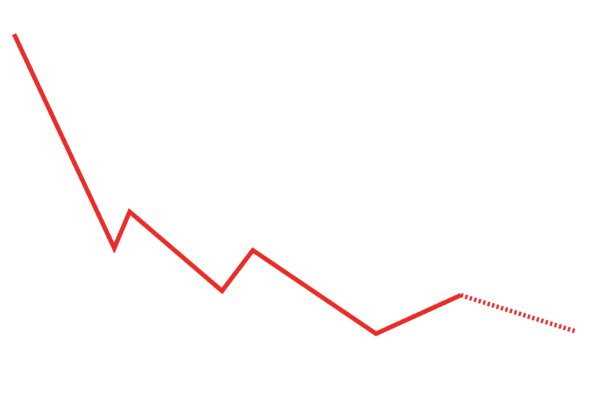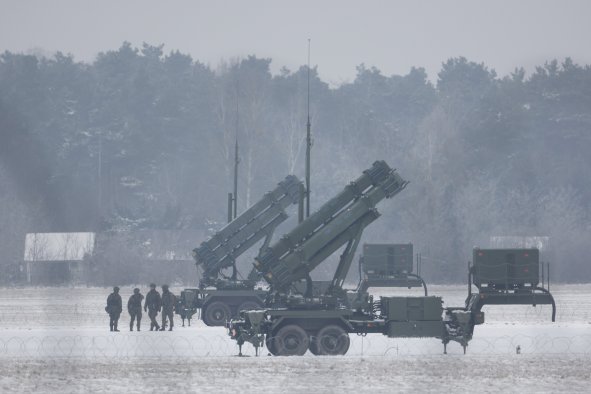Ismail Haniyeh saved my life, but I am not particularly grateful. In 2010, he and his armed men held me captive and carried out two mock executions.
I'm a journalist and had been filming an independent production inside Gaza, about a rocket-firing militant who had changed his mind and was now seeking peace between the Palestinians and Israel.
It was, of course, a theme that contradicted the policy and practice of Hamas. But the real reason Haniyeh and his internal security had me locked up lay elsewhere: In Dubai and in Damascus.
Mossad agents dressed as tennis players had managed to get into the hotel in Dubai where a senior Hamas operative, Mahmoud al-Mabhouh, was staying, killed him, and then escaped.
Al-Mabhouh had been buried in Damascus just a few days before I was taken captive, which happened to be Valentine's Day in 2010.
Hamas needed to show they had acted swiftly to find the culprit, and therefore having me in their custody allowed them to point the finger—at me.
When I first met Haniyeh, he was at a funeral of a rocket-firer killed by Israel, and vowed: "The resistance will get bigger, it will grow and grow and we will spill more and more blood."
I next met him the day after he had taken control of the Gaza government in 2006. He dodged questions about the battles between his faction and the previous Palestinian rulers of the Strip, Yasser Arafat's movement, Fatah.
He was keen to show me his prowess on the volleyball court, although he joined a game while wearing his suit trousers, white shirt, and leather shoes.
While Hamas continued periodically firing rockets into Israel, not differentiating between military and civilian targets, most of the casualties in 2007 under Haniyeh's leadership were caused by internecine fighting.
"Aren't you ashamed," I asked him while filming another report, "that of the last 100 Palestinians killed in Gaza, 98 have been killed by either Hamas or Fatah?"
Dr. Mustafa Barghouthi, the intermediary trying to bring about reconciliation between the Palestinian factions, was so worried about the question that, he later told me, he deliberately mistranslated it so as not to anger Haniyeh.
A "unity government" set up in January 2007 collapsed in June, when another bloody four days of internal fighting topped the legitimate armed forces and Hamas took full power.
That same night, I managed to get to Haniyeh, and urged him to arrange the release of my colleague Alan Johnston, who was being held captive by a criminal Islamist gang.
Days later Johnston walked free after four months. Banners proclaiming "we will protect all foreign journalists" were stretched across several main roads in Gaza City.
After all, they needed us, Haniyeh figured, to help Hamas portray an image of the Gaza citizens themselves being held captive by Israel, which had rejected Hamas rule, as indeed had most of the world.
I was surprised that as the short war between Israel and Hamas ended in a ceasefire in January 2009, Haniyeh and his fellow leaders were nowhere to be seen.
They had hidden in the X-ray department of the largest hospital, Shifa, and inside specially constructed underground cells, leaving their own population to bear the brunt of the fighting.
Haniyeh emerged 10 days after the ceasefire. Many locals portrayed him and his cronies as cowards but dared not say that too loudly. He had (in his own terminology) sacrificed another thousand or more civilians to "the cause" and vowed to continue doing so.
Journalists like me, who had filmed Hamas operatives smuggling short-barrelled Kalashnikov semi-automatics through tunnels dug between Egypt and Gaza, leading to an ITV News lead story it headlined "Inside the terror tunnels of Gaza", were failing to portray the innocent messaging that Hamas wanted and expected from foreign correspondents.
That too helped explain why Haniyeh had me arrested. However, after my 26 days of near-death experiences, Haniyeh changed his mind and released me—partly because pro-Palestinian Nobel Peace Prize winner Archbishop Desmond Tutu had written him a letter, in which he pointed out my anti-apartheid track record and urged Haniyeh to relent.
Astonishingly, Haniyeh allowed me back into Gaza in 2014, his way of indirectly apologizing for having held me prisoner four years earlier. He declined to grant me an interview this time, though.
He chose to continue the Hamas fight from the luxury of oil-rich Gulf states like Qatar and the major backer, Iran. It is even possible he lost control of the main confrontation, which was being run by one of his junior colleagues, the ultra-fanatical Mohamed Sinwar, inside the Gaza Strip. Sinwar is the only Hamas leader I never met—because I have not returned to Gaza since 2014.
Despite all, in my writings I was always willing to give Haniyeh and Hamas the benefit of any doubt. Maybe it would change and become a more peaceful organization, to the benefit of the Palestinian people.
That never happened. I was wrong.
It is now obvious that Haniyeh must have known full well that financial aid pouring in from the oil-and-gas-rich Gulf state of Qatar and from Iran's fanatical military and political leadership, were being spent not for the public good, but to build a massive network of tunnels and to construct a wide range of weaponry.
The result was the attacks Hamas authorized on October 7 last year, killing around 1,200 people inside Israel, the largest slaughter of Jews in a day since the Nazis.
I knew from that moment on that Haniyeh's days on this earth would be numbered, wherever he traveled or hid.
When I think today of Haniyeh, I still see his smiling face as he bounced around the volleyball court.
But I also realize that behind his smiles, the man has done something unforgivable: By unleashing a war that "sacrificed" thousands of his citizens and devastated his territory while stubbornly and pointlessly holding on to civilian hostages, he has set back the Palestinian cause by decades, and condemned the region to many years of continued strife.
His epitaph is written in blood.
Paul Martin is a former correspondent for the BBC and NPR in the Middle East and Africa. He runs MediaZones.net.
All views expressed are the author's own.
Do you have a unique experience or personal story to share? See our Reader Submissions Guide and then email the My Turn team at myturn@newsweek.com.
Disclaimer: The copyright of this article belongs to the original author. Reposting this article is solely for the purpose of information dissemination and does not constitute any investment advice. If there is any infringement, please contact us immediately. We will make corrections or deletions as necessary. Thank you.



